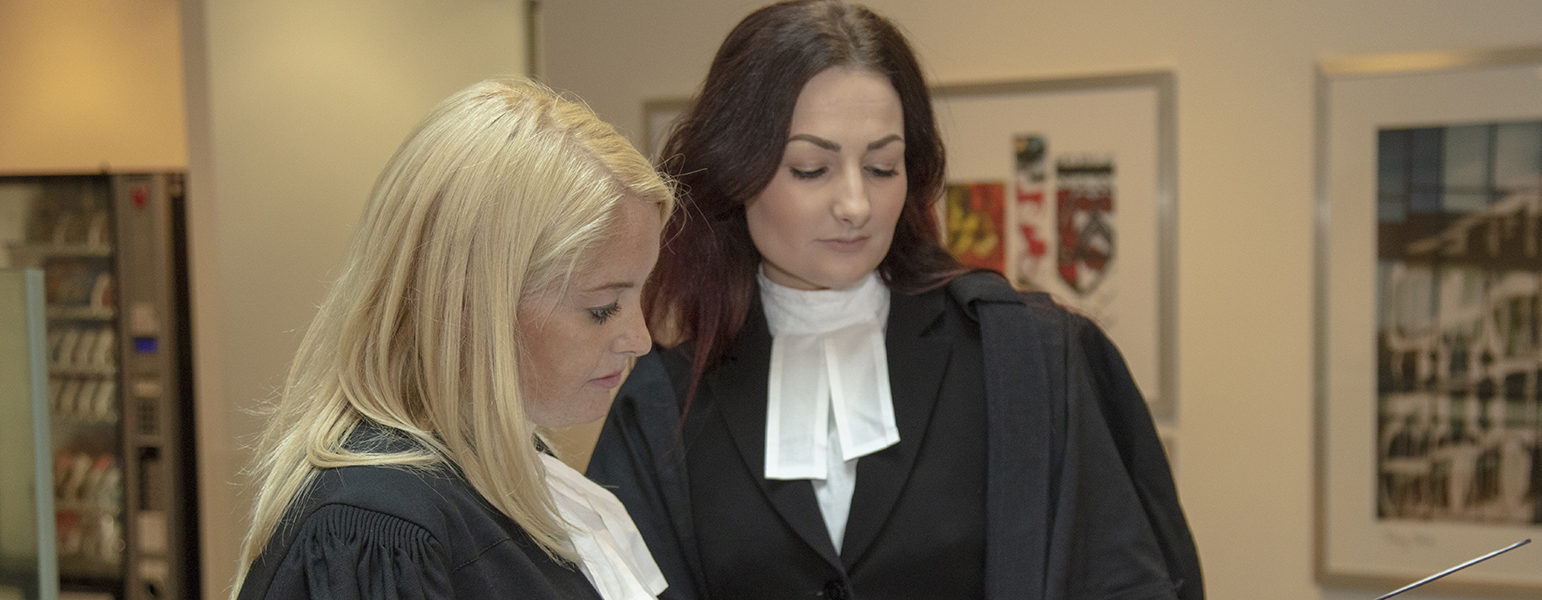Intermediaries for Defendants
"Whole Trial" or "Evidence Only"
Still tension between the Courts and Intermediaries
In a recent CA decision in R v Biddle [2019] EWCA 68 (Crim) the CA expressed its frustration with the policy of Communicourt to withdraw from the process of assisting a Defendant where ‘full trial’ assistance had been recommended but the court ruled that ‘evidence only’ assistance was necessary.
What is the position of the Intermediaries?
Communicourt operates a policy called Decision-Making in Respect of Intermediary Appointments for Defendants which reads, at paragraph 8:
“Decisions about when an intermediary is required need to be made on a case-by-case basis. If the assessing intermediary is of the view that the Defendant would not fully understand the prosecution case and be able to instruct his/her legal team without the use of an intermediary, Communicourt will not accept a booking which is only for the point of giving evidence.”
Intermediaries for Justice take a similar stance and have this to say:
“An intermediary whose assessment indicates that assistance is required for the whole trial will have some professional difficulty with being directed by the court to assist only with evidence. If an intermediary considers that without fully understanding the prosecution evidence, their right to decide whether to give evidence, to instruct their counsel (in the absence of assistance) will adversely affect their performance in the witness box, the Intermediary may withdraw as she cannot perform the function for which they are engaged: effective participation.”
To put this into some context, the IFJ state that it is only in a “minority of cases where a vulnerable person has competent understanding, and good mental health, but has speech impairment, that it may be appropriate for the judge to appoint an intermediary for the period of giving evidence only.”
What do the Criminal Practice Directions say?
The Criminal Practice Direction states at paragraph 3F.12 “There is however no presumption that a Defendant will be so assisted and, even where an intermediary would improve the trial process, appointment is not mandatory (R v Cox [2012] EWCA Crim 549). The court should adapt the trial process to address a Defendant’s communication needs (R v Cox [2012] EWCA Crim 549).”
Paragraph 3F.13 of the Criminal Practice Direction makes the point in the following terms:
“The court may exercise its inherent powers to direct appointment of an intermediary to assist a Defendant giving evidence or for the entire trial. Terms of appointment are for the court and there is no illogicality in restricting the appointment to the Defendant’s evidence (R v R [2015] EWCA Crim 1870), when the ‘most pressing need’ arises (OP v Secretary of State for Justice [2014] EWHC 1944 (Admin)). Directions to appoint an intermediary for a Defendant’s evidence will thus be rare, but for the entire trial extremely rare, keeping in mind paragraph 3F.12 above.”
It is worth noting that this high hurdle to secure an intermediary’s attendance at trial for a Defendant was made even more difficult after R v Rashid [2017] EWCA Crim 2; [2017] 1 WLR 2449 when Lord Thomas CJ said at paragraphs 80 and 81:
“In considering what is needed in a particular case, a court must also take into account the fact that an advocate, whether a solicitor or barrister, will have undergone specific training and must have satisfied himself or herself before continuing to act for the Defendant or in continuing to prosecute the case, that the training and experience of that advocate enabled him or her to conduct a case in accordance with proper professional competence. Such competence includes the ability to ask questions without using tag questions, by using short and simple sentences, by using easy to understand language, by ensuring that questions and sentences were grammatically simple, by using open-ended prompts to elicit further information and by avoiding the use of tone of voice to imply an answer. These are all essential requirements for advocacy whether in examining or cross-examining witnesses or in taking instructions. An advocate would in this court’s view be in serious dereliction of duty to the court, quite apart from a breach of professional duty, to continue with any case if the advocate could not properly carry out these basic tasks.”
It is clear from here, that a judge is required to make an assessment of what level of assistance, if any, to order, based on the assumption that the advocates in the case offer the requisite level of competence. This must mean that advocates should have been specifically trained under the national Advocacy and the Vulnerable course and be familiar with relevant aspects of The Advocate’s Gateway.
In spite of heroic efforts to train advocates to adapt their skills when dealing with vulnerable witnesses, the statutory provisions allowing for Defendants to benefit from the assistance of an intermediary when giving evidence are still not in force. The reason for this is that section 104 of the Coroners and Justice Act 2009, drafted to insert 33BA and 33BB into the Youth Justice and Criminal Evidence Act 1999, is not yet in force.
That said, Criminal Practice Direction paragraph 3F.12 makes clear “The court may direct the appointment of an intermediary to assist a Defendant in reliance on its inherent powers (C v Sevenoaks Youth Court [2009] EWHC 3088 (Admin)).”
The relevance of the R v Biddle decision
R v Biddle highlights the problems that can ensue when an intermediary is not present for a Defendant’s evidence and thereafter when a decision is taken for him/her not to give evidence. This can and did, in R v Biddle, lead to an adverse inference direction by the judge.
Facts of R v Biddle
Biddle made an application for the assistance of an intermediary at his crown court trial. He was 17 and charged with serious sexual offences against a 12 year old girl. The request was supported by a report from a psychologist and a report from Communicourt who said that the Defendant required the services on an intermediary throughout the trial.
The request was approved by the trial judge a week before the trial but on the morning of trial itself, a different Judge, having heard evidence from the intermediary, varied the earlier direction so that the intermediary was only appointed in the event that the Defendant gave evidence. The appointment of the intermediary was to include any discussion as to whether the Defendant should give evidence.
What is perplexing here is that neither judge seized of making the order, was specifically directed to the test in the Criminal Practice Direction as set out in Rashid.
The Crown proceeded without an intermediary for the Defendant. No adjournment was sought. The defence intermediary did not return to Court at the end of the Prosecution case because of the Communicourt policy, as set out above, only to provide an intermediary for the entire trial or not at all.
The Appellant decided not to give evidence and the Judge went on to give an adverse inference direction in accordance with section 35 of the Criminal Justice and Public Order Act 1994.
The Appeal
The appeal concerned the second judge’s decision to vary the order for an intermediary to attend for the whole trial and secondly and relatedly to the adverse inference direction. The appeal was dismissed. The Vice President of the Court of Appeal (Criminal Division) gave judgment.
What is clear is that the threshold for securing an intermediary for a Defendant remains very different and very high compared to the provisions for witnesses. Many think this is grossly unfair. It was argued in R (on the Application of OP) v the Secretary of State for Justice [2014] EWHC 1944 (Admin) that the scheme for registered intermediaries be rolled out to Defendants just as it is for witnesses.
The court’s frustration with Communicourt in R v Biddle was stark:
“We understand the perceived difficulties for the intermediary and possibly for Defendants in instructing intermediaries solely for the giving of evidence, but… it is not for Communicourt to dictate the duration of the need for an intermediary. The principles, as set out in Rashid and the Practice Direction, are clear: the intermediary can make a recommendation based on the material they have considered but it is just that – a recommendation. Ultimately it is for the trial judge to decide, having considered all the material, whether and to what extent an intermediary is necessary. Only in a very rare case will an intermediary be required for the duration of the trial. Communicourt’s policy, as it seems to us, turns that test on its head and suggests that if a Defendant requires an intermediary for giving evidence, it is only in a rare case that he or she will not require an intermediary for the duration of the trial. In our view, Communicourt’s stated policy of only providing an intermediary for the giving of evidence alone if the assessing intermediary so recommends is wrong and should be revisited. If the company accepts instructions to assess a possibly vulnerable Defendant, they should also accept they will abide by the trial judge’s directions.”
ICCA Comment
Advocates should always be mindful of the relevant Criminal Practice Directions and of relevant case law, in this instance Rashid.
Advocates should fully understand the remit of the intermediary and the policies and procedures which govern their work.
In the CA ruling on the adverse inference, a point was made about the defence solicitors not being in attendance with the Defendant during the trial, suggesting they had confidence in the appellant’s ability to follow the trial, with Counsel’s assistance. Some may find this surprising given that this is a fairly rare occurrence now in time of legal aid austerity.


